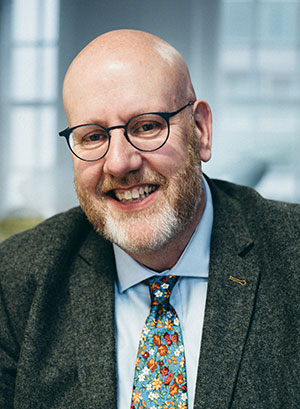-
-
-
-
-
- Code of Professional Conduct for Veterinary Surgeons
- Code of Professional Conduct for Veterinary Nurses
- Contact the Advice Team
- XL Bully dog ban
- 'Under care' - new guidance
- Advice on Schedule 3
- Controlled Drugs Guidance – A to Z
- Dealing with Difficult Situations webinar recordings
- FAQs – Common medicines pitfalls
- FAQs – Routine veterinary practice and clinical veterinary research
- FAQs – Advertising of practice names
- GDPR – RCVS information and Q&As
ViVet Symposium 2019 and reflecting on veterinary innovation from the past into the future
I am currently reading Iain Pattison’s The British Veterinary Profession 1791-1948 - a fascinating and interesting read on the history of the professions and some of the early veterinary pioneers who steered us with passion and diligence towards the modern veterinary profession we have today.
 I am transported and inspired by the work of those who had to progress in a world where animals were once tended by ‘horse doctors, horse surgeons, farriers, cow leeches, cattle-doctors, castrators, spayers and gelders, charmers, spell-workers, butty-colliers, water dousers…’ – the list goes on.
I am transported and inspired by the work of those who had to progress in a world where animals were once tended by ‘horse doctors, horse surgeons, farriers, cow leeches, cattle-doctors, castrators, spayers and gelders, charmers, spell-workers, butty-colliers, water dousers…’ – the list goes on.
I am enjoying reading about early veterinary leaders, such as Thomas and Thomas Walton Mayer, father and son veterinary surgeons who began the work towards the Charter, which created the RCVS and recognised the veterinary surgeon profession in 1844.
Leaders like Sir Frederick Fitzwygram, 4th Baronet, ex Eton and Sandhurst and of the 6th Dragoons, who gave us the Charter of 1876.
Or George Fleming, forge boy, son of a Glasgow farrier, credited for the Act of Parliament 1881 and Aleen Isabel Cust, our first woman veterinary surgeon, recognised in December 1922.
I think of those early veterinary surgeons and their future-focused attitudes. They imagined a profession of skilled and regulated professionals, with animal welfare at the heart of what they do. They worked with new concepts and advancing tech. They really were innovators at a time where the world and profession was rapidly changing and advancing.
So, how will future generations judge us as innovators? What about innovation in today’s changing landscape?
Earlier this month I attended the RCVS ViVet Innovation Symposium in Manchester, where a series of excellent speakers challenged, stimulated and inspired us with discussions on what the future might hold, how we might explore it and what opportunities there could be for our veterinary professions.
The day was fantastic. We heard about how technology will fundamentally change the role of the veterinary professional. There was discussion about changes in consumer demand and a debate on how a shift to focus on customers’ needs presents both opportunities and challenges for the veterinary professions. There was also discussion about the role of the regulator in addressing innovation and our changing society.
One of my highlights from the day was the excellent talk given by keynote speaker, Nancy Rademaker, on ‘Survival in the New Normal’. In her presentation, she talked about how young people are in the ‘New Normal’ and how many of us are trying to find balance between the ‘way things have always been done’ and striving to negotiate the future with its changing landscape of new concepts, public needs and tech advances.
Nancy commented that we should think in opportunities, not in boundaries or limits, and that may mean that we sometimes have to unlearn what we have learned to imagine the beyond.
I also loved the Student Veterinary Innovation Competition, where three finalist teams presented innovative veterinary proposals in front of a panel of industry professionals.
All three of the finalists were fantastic and I was incredibly impressed by the students’ confidence presenting in front of a room filled with seasoned veterinary leaders.
The winning team was Christina Ratcliffe and Ana Almeida-Warren from Liverpool University with their VetCase app concept - a case-based learning app including clinical examinations and diagnostic test exercises to reflect real-life situations and help students prepare for life after graduation.
Listening to and reflecting on these presentations, along with the other presentations throughout the day, has made me think back to The British Veterinary Profession 1791-1948, as it strikes me how many of the challenges those early professionals faced mirror issues we face today.
As technology and the amount of data that we have access to exponentially expands, and as the world becomes more connected and customer-centric, our professions face new challenges and opportunities – for example, the role in which artificial intelligence will have to play in the veterinary professions.
I believe that we can learn something from the veterinary pioneers of the past. We should embrace innovation and strive to use new developments to continue to enhance the professions.
We also need to recognise that veterinary professionals have always been innovators – just open a copy of The British Veterinary Profession 1791-1948 to be bombarded with examples – and so we shouldn’t be hesitant of the important role we have to play in shaping the future.
Those early professionals imagined the beyond and it would be unfair of us, the ones privileged to carry on their legacy of improving animal health and welfare, to let them down by doing anything less.
Videos and a write up of the presentations from the Symposium will be available on the ViVet website soon.
Published on 17 October 2019